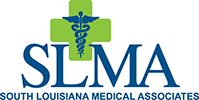You’ve probably heard the saying “breast is best,” but you may be wondering if it’s true. What makes breastfeeding the ideal choice for many people? In honor of Breastfeeding Awareness Month, we want to share information about the benefits of breastfeeding for both mom and baby.
Ideal Nutrition for Baby
The mix of protein, vitamins and fat in breast milk provides babies with everything they need to grow and develop. Breast milk changes with your baby to provide what they need at different times. In the first few days after delivery, the breasts produce colostrum, a thick, yellowish milk. This early milk is loaded with nutrients to help your baby’s digestive tract develop. Once your regular breast milk comes in, it changes too both as the baby grows and during each feeding. For example, the milk at the end of a feeding has a higher fat content so babies feel full and satisfied. Breast milk is also easy for babies to digest.
Fewer Health Problems
Babies who breastfeed exclusively for the first six months are less likely to suffer from certain health problems both as infants and later in life. Antibodies from the mother are passed to the infant in the milk to help them fight off bacteria and viruses. Babies are likely to have fewer respiratory illnesses, ear infections or bouts of diarrhea, as well as fewer trips to the doctor or hospital. Even as the child grows, the benefits of breastfeeding continue because they are less likely to suffer from allergies or asthma.
Bonding Between Mother and Baby
Breastfeeding provides a special time for mothers and babies to develop a strong bond. The physical closeness of breastfeeding along with eye contact and skin-to-skin contact help promote bonding. This is good for both mom and baby. It’s a great opportunity for mom to talk with baby and provides time throughout the day for her to put her feet up and relax. Bonding can help babies feel safe and secure and offers psychological benefits as babies are less likely to suffer from mental health issues later on.
Proper Weight Gain
Breastfed babies are more likely to stay on track with weight gain and are less likely to become overweight children. The breasts produce milk to match the baby’s needs; as your baby needs more food and nurses more, the breasts respond by producing more milk to meet the growing demand.
Reduced Risk of Disease for Baby
Additional research is needed in the area of breastfeeding and disease, but there seems to be a lower risk of certain types of cancer, diabetes and obesity for breastfed babies. Breastfeeding can also help lower the risk of sudden infant death syndrome (SIDS).
Reduced Risk of Disease for Mom
Moms also have a lower risk of certain diseases after breastfeeding their babies. Ovarian cancer, breast cancer and osteoporosis are less likely for women who breastfed.
Getting Your Body Back
Breastfeeding can make it easier to get your body back after pregnancy. Producing breast milk requires about 500 calories per day which can make it easier to shed those pregnancy pounds. The hormone oxytocin is released during breastfeeding and stimulates the uterus to contract and return to pre-pregnancy size.
Save Time and Money
Buying formula for your baby can be expensive, so taking advantage of the free food available for baby at the breast can save you a bundle. It’s also more convenient and saves time because you don’t need to purchase formula, sterilize bottles or measure and prepare formula. Breast milk is ready when the baby is hungry and comes out clean at the perfect temperature.
The decision between breastfeeding and formula feeding is a personal one. Knowing about some of the benefits of breastfeeding can help you make an informed decision, but in the end, you and your baby are unique and you should decide what’s best for you. At SLMA, we strive to support mothers and babies; whether you choose to breastfeed or formula feed, we want you and your baby to thrive.

